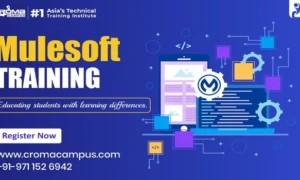Navigating through academic assignments can sometimes feel like walking through a labyrinth, especially if you’re a student at NMIMS (Narsee Monjee Institute of Management Studies). But fear not, for this blog is here to unravel the mysteries of NMIMS assignments in an easy-to-understand language. Whether you’re a freshman or a seasoned student, our guide will equip you with the knowledge you need to ace your assignments with confidence.
Understanding NMIMS Assignments
NMIMS assignments are an integral part of your academic journey. These assignments serve as a bridge between theoretical knowledge and practical application. They are designed to test your understanding of the subject matter, critical thinking skills, and your ability to communicate effectively.
Types of NMIMS Assignments
- Research Papers: These assignments require you to delve deep into a specific topic, gather information from various sources, and present your findings in a structured manner. Research papers evaluate your research skills, analytical thinking, and ability to cite credible sources.
- Case Studies: Case studies simulate real-world scenarios and challenge you to apply theoretical concepts to practical situations. You’ll need to analyze the given situation, identify problems, propose solutions, and justify your recommendations.
- Presentations: Presentations showcase your ability to convey information in a concise and engaging manner. You might need to present a topic individually or as part of a group, using visual aids and effective communication techniques.
- Essays: Essays require you to express your thoughts, arguments, and opinions on a specific topic. Your ability to articulate ideas clearly and logically, along with a well-structured format, is key to excelling in essay assignments.
- Online Quizzes/Exams: These assessments test your knowledge within a limited timeframe. They may include multiple-choice questions, short answers, or even longer essay-style questions
Cracking the Code: Tips for Excelling in NMIMS Assignments
- Understand the Guidelines: Carefully read and understand the assignment guidelines. Pay attention to formatting, word limits, citation styles, and any specific instructions provided by your professor.
- Research Thoroughly: For research-based assignments, gather information from reputable sources such as academic journals, books, and credible websites. Take notes and organize your findings before starting to write.
- Plan Your Time: Assignments often have deadlines, so it’s essential to manage your time wisely. Break down the task into smaller chunks, set milestones, and create a schedule to avoid last-minute rushes.
- Structure Your Work: Maintain a clear and logical structure for your assignments. Typically, an introduction, main body, and conclusion work well for essays, while other assignments might require specific formats.
- Use Simple Language: While NMIMS values academic rigor, assignments should also be easy to understand. Use clear and simple language to convey your ideas effectively. Avoid jargon unless it’s necessary and properly explained.
- Proofread and Edit: After completing your assignment, proofread it for grammatical errors, typos, and clarity. Editing ensures that your work is polished and well-presented.
- Cite Properly: If your assignment involves referencing external sources, use the appropriate citation style (APA, MLA, Chicago, etc.). Proper citations lend credibility to your work and avoid plagiarism issues.
NMIMS Assignment FAQs
- What is the Ideal Length for Assignments?
- The length of assignments can vary. Always follow the word count guidelines provided in the assignment instructions. Striking the right balance between being concise and comprehensive is key.
- Can I Work in Groups for Assignments?
- Some assignments might be designated as group projects, while others could be individual tasks. If group work is allowed, ensure effective collaboration and distribute tasks fairly.
- How Important is Originality?
- Originality is highly valued in academic assignments. Plagiarism, the act of using someone else’s work without proper attribution, is strictly prohibited. Always cite your sources and present your unique perspective.
- What if I Don’t Understand the Topic?
- If you’re struggling to grasp the topic, don’t hesitate to seek clarification from your professor or classmates. A clear understanding of the topic is crucial for producing quality work.
Conclusion
NMIMS assignments are not meant to be daunting obstacles, but rather opportunities for growth and learning. By understanding the different types of assignments, following best practices, and seeking assistance when needed, you can confidently tackle any task that comes your way. Remember, each assignment is a chance to showcase your knowledge, skills, and dedication, bringing you one step closer to academic excellence. So, embrace the challenge, put your best foot forward, and watch your NMIMS journey flourish.
<<< Read More >>>







































